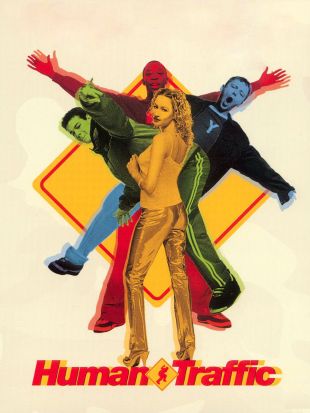
A host of American features, from Go to Groove, have tried with varying degrees of success to portray the agony and the, ahem, ecstasy of the peculiar cultural experience that is a rave. Although this independent British feature is set in that country's more mainstream, club-based dance-music milieu, it comes closer than any film since Trainspotting to painting an accurate picture of the pleasures, motivations, and repercussions of underground dance-and-drug culture. Young director Justin Kerrigan's semi-autobiographical script about a quintet of young clubbers in Cardiff, Wales, nails most aspects of the lifestyle with telling details: the hedonistic excess, the loved-up camaraderie, and even the element of working-class fatalism that powers this huge leisure industry. The music ranges from dumbed-down tripe such as Fatboy Slim to the skewed underground house of Chicago's Felix Da Housecat and the disparate drum'n'bass of Dillinja and Aphrodite. Respected veteran techno DJ Carl Cox even makes a cameo as a shady club owner. The real reason Human Traffic is such a hoot, however, is that principals John Simm, Lorraine Pilkington, Shaun Parkes, Danny Dyer, and Nicola Reynolds so distinctively embody various raveland types; and that Kerrigan uses such a delightful array of cheeky techniques to portray the subjective reality of their lost weekend. Only 80 minutes long, Human Traffic packs in whimsical fantasies, faux-Lynchian reveries, interior monologues, and whacked-out dialogue (not to mention a rather gratuitous masturbation-discovery scene). The lack of traditional plot allows Kerrigan to meander through the stray moments that sometimes make after-parties better than the main event. He's surely the first director ever to shoot a scene from underneath a mirrored coffee table as a pair of protagonists chop up lines of coke and pull faces at one another for several minutes. To call Human Traffic slight is accurate but uncharitable; most of life's key moments are not weighty events, but uproarious weekends spent among friends.
